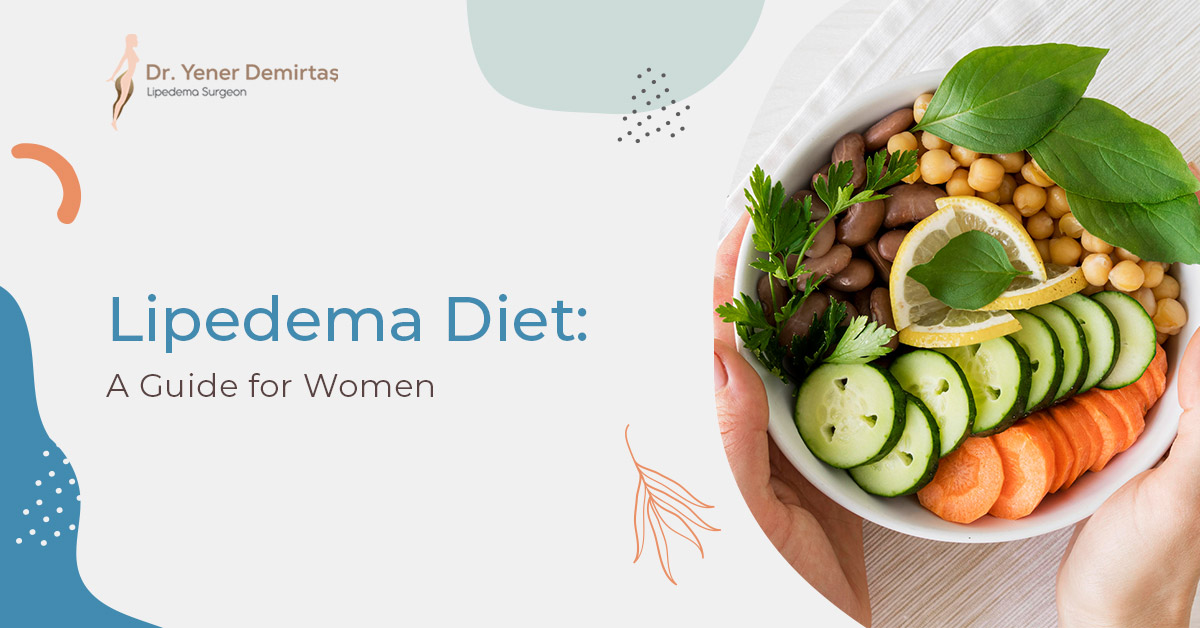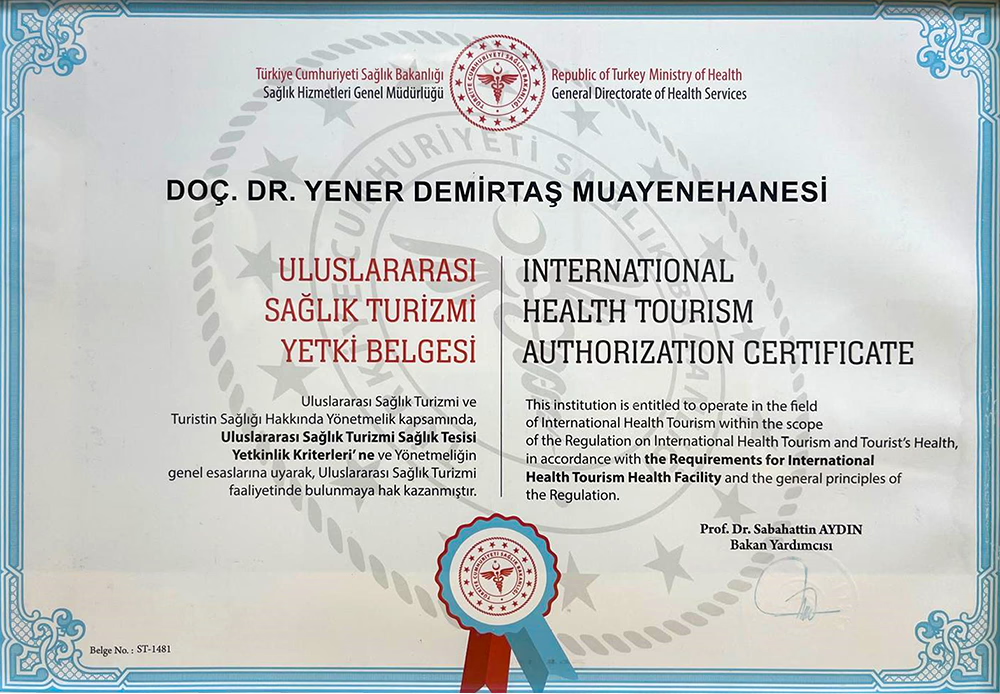
Lipedema Diet: A Guide for Women
Lipedema is a common condition affecting 3-5% of women. It typically occurs between the ages of 20 and 40, but it can affect women of all ages. A strong family history of lipedema is a significant risk factor. While excess weight and obesity can increase the risk of lipedema, it can also affect women who are not overweight. Due to the strong link between excess weight and lipedema, a lipedema diet is crucial for managing the condition.
Lipedema Diet: Balancing Fat and Carbohydrates
Lipedema is characterized by fat accumulation in the legs and hips. Therefore, a key component of the lipedema diet is balancing fat and carbohydrate intake.
Focus on Healthy Fats, Avoid Saturated Fats:
- Saturated fat sources include red meat, full-fat dairy products, eggs, poultry skin, margarine, coconut oil, and palm oil (found in many packaged snacks and sweets). These fats increase cholesterol levels, promote inflammation, and can worsen lipedema symptoms.
- Choose healthy fats from sources like olive oil, avocados, nuts, and fatty fish. These fats are essential for the lipedema diet, as they help reduce inflammation and promote satiety.
- Include omega-3 fatty acids: Omega-3s found in salmon, mackerel, and walnuts can help alleviate lipedema symptoms.
Limit Refined Carbohydrates, Choose Whole Grains:
- Refined carbohydrates include white flour, white rice, white bread, pasta, breakfast cereals, sugary drinks, and pastries. These carbohydrates cause rapid blood sugar spikes, leading to insulin resistance and potentially worsening lipedema symptoms.
- Choose whole grains rich in fiber, vitamins, and minerals. Whole grains help regulate blood sugar levels, promote satiety, and improve digestion.
- Consume plenty of fruits and vegetables: Fruits and vegetables are rich in fiber, vitamins, minerals, and antioxidants. They help reduce inflammation, strengthen the immune system, and improve overall health.
Tips for Balancing Fat and Carbs in the Lipedema Diet:
- Add healthy fats to your meals: Cook with olive oil, include avocado in your dishes, or snack on nuts.
- Choose whole grains over refined options: Opt for brown rice instead of white, quinoa instead of pasta, and whole-wheat bread instead of white bread.
- Snack on fruits and vegetables: Choose fruits, vegetables, or yogurt for snacks instead of sugary or processed options.
- Practice portion control: Use smaller plates and pre-portion snacks to avoid overeating.
- Stay hydrated: Water helps eliminate toxins and promotes satiety.
Protein Intake in the Lipedema Diet
Adequate protein intake is another crucial aspect of the lipedema diet. Protein is the building block of muscle tissue, and a balanced protein intake helps maintain and repair muscle mass. This can help prevent further fat accumulation associated with lipedema.
How Much Protein is Needed in the Lipedema Diet?
The general recommendation for adults is 0.8 grams of protein per kilogram of body weight daily. This amount might be slightly higher for lipedema patients. Many experts recommend 1.2-1.5 grams of protein per kilogram of body weight daily for individuals with lipedema. However, your protein needs may vary depending on your age, gender, activity level, and overall health.
Tips for Increasing Protein Intake in the Lipedema Diet:
- Include protein sources in every meal: Add eggs or yogurt to breakfast, chicken or fish to lunch, and beans or tofu to dinner.
- Choose protein-rich snacks: Snack on nuts, seeds, yogurt, or protein bars.
- Add protein powder to your meals: Consider adding protein powder to smoothies or protein shakes.
- Choose cooking methods that preserve protein: Opt for grilling, baking, or boiling over frying.
Fiber Intake in the Lipedema Diet
Fiber-rich foods promote a healthy digestive system, prevent constipation, and regulate bowel movements. Additionally, fiber helps with satiety, preventing overeating. It can also help regulate blood sugar levels and lower LDL (bad) cholesterol while raising HDL (good) cholesterol.
Fiber Sources:
Fruits: Apples, pears, bananas, oranges, kiwis, and blueberries are all rich in fiber.
Vegetables: Broccoli, spinach, Brussels sprouts, carrots, beets, and squash are all good sources of fiber.
Whole Grains: Oatmeal, brown rice, bulgur, quinoa, and whole-wheat bread are all rich in fiber.
Legumes: Beans, lentils, and chickpeas are excellent sources of fiber.
Nuts and Seeds: Nuts, walnuts, almonds, flaxseeds, and chia seeds are all high in fiber.
Tips to Increase Fiber Intake in the Lipedema Diet:
- Consume more fruits and vegetables: Aim to include fruits and vegetables in every meal. Fruits and vegetables are excellent sources of fiber and provide essential vitamins, minerals, and antioxidants that support overall health.
- Choose whole grains over refined options: Replace refined grains like white bread, white rice, and white pasta with whole grains like brown rice, quinoa, and whole-wheat bread. Whole grains are rich in fiber, which helps regulate blood sugar levels, promote satiety, and support digestive health.
- Incorporate legumes into your diet: Legumes, such as beans, lentils, and chickpeas, are excellent sources of fiber and protein. They can be added to salads, soups, stews, and various other dishes to boost fiber intake.
- Snack on fiber-rich options: When choosing snacks, opt for fiber-rich options like nuts, seeds, dried fruits, or vegetable sticks. These snacks provide sustained energy and help curb cravings.
- Ensure adequate water intake: Water is crucial for fiber to move effectively through the digestive system. Aim to drink 2-3 liters of water daily to stay hydrated and support fiber digestion.
Hydration Importance in the Lipedema Diet
Water is essential for all bodily functions, including transporting nutrients, eliminating waste products, regulating body temperature, lubricating joints, and maintaining skin hydration. Proper hydration is particularly important for individuals following the lipedema diet.
Tips for Staying Hydrated in the Lipedema Diet:
- Drink plenty of water throughout the day: Make water your primary beverage and aim to drink consistently, even if you don't feel thirsty.
- Flavor your water: Enhance the taste of water by adding fruits, vegetables, or herbs like lemon, cucumber, or mint. This can encourage you to drink more water.
- Carry a reusable water bottle: Keep a reusable water bottle with you and sip on water regularly throughout the day.
- Limit sugary drinks: Avoid sugary drinks like sodas, juices, and energy drinks. These beverages can contribute to dehydration and provide empty calories.
Additional Considerations for the Lipedema Diet
In addition to increasing fiber and water intake, lipedema patients should focus on limiting the consumption of processed foods, packaged snacks, sugary drinks, and excessive salt. These foods can worsen lipedema symptoms and negatively impact overall health.
Regular exercise plays a crucial role in managing lipedema symptoms and improving overall well-being. Low-impact exercises like walking, swimming, and cycling are particularly beneficial for individuals with lipedema.
Stress management techniques like yoga, meditation, and deep breathing can be helpful in reducing stress and promoting emotional well-being, which can positively impact lipedema symptoms.
Joining lipedema support groups can provide valuable connection, shared experiences, and emotional support with others facing similar challenges.
Conclusion: Lipedema Diet and a Holistic Approach
The lipedema diet, combined with regular exercise, stress management, adequate sleep, and personalized guidance from healthcare professionals, can significantly improve lipedema symptoms and overall quality of life. Remember, consistency and individualized support are key to successful lipedema management.
Always consult your doctor or a registered dietitian for personalized guidance on managing lipedema.

